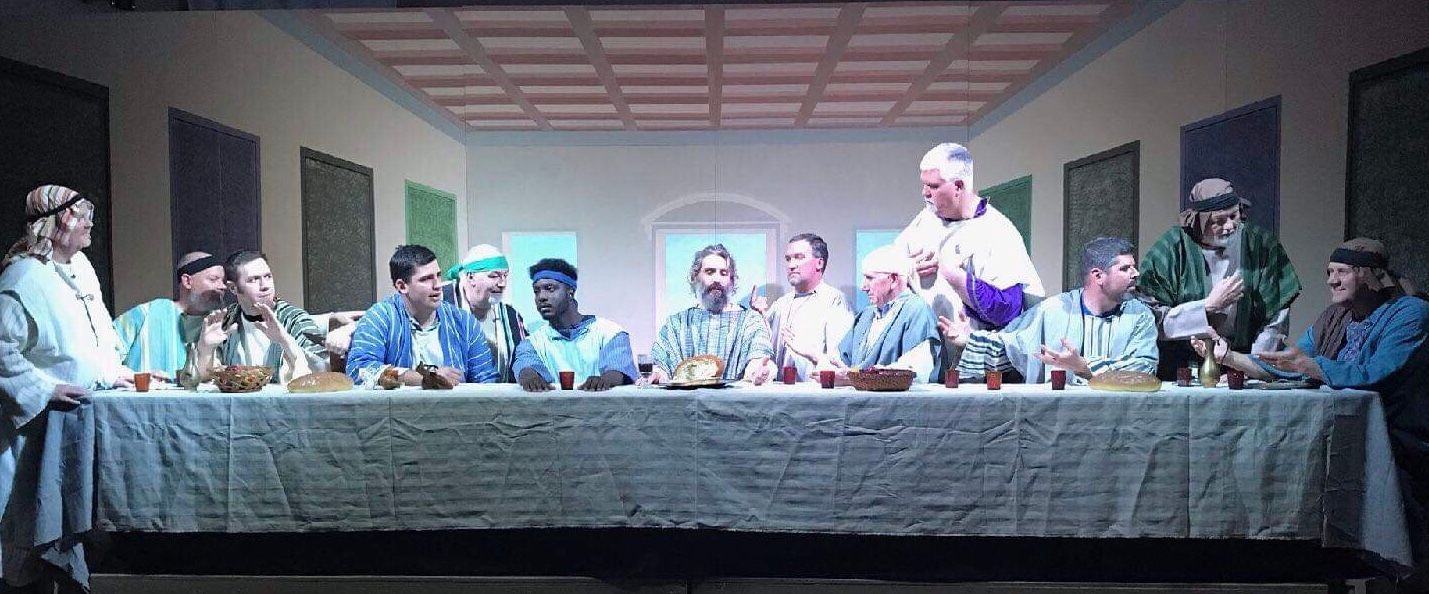Communion
Communion
One of the memorable things visitors notice in our worship times is the observance of the Lord's Supper and that we partake every Sunday.
We want everyone who has named the name of Christ as Savior and been baptized into the Father, the Son and the Holy Spirit to partake and remember to do this each Lord's Day.
The scriptures reveal a pattern of participation in remembering the Lord's sacrifice on a weekly basis.
He commanded "This do in remembrance of me." To fulfill that order or command, we see they met on the first day of every week.
Acts 2:42 (NASB) "They were continually devoting themselves to the apostles teaching and to fellowship, to the breaking of bread and to prayer."
Other translations word it, "They steadfastly." There is a pattern in being steadfast.
Acts 20:7 (NASB) "On the first day of the week, when we were gathered together to break bread, Paul began talking to them, intending to leave the next day, and he
prolonged his message until midnight." This text shares their purpose in gathering.
1 Corinthians 11:18 (NIV) "In the first place when you come together as a church, I hear there are divisions among you." Paul will begin to address an issue they practiced concerning the Communion but before we look into it, I want to go to the 16th chapter to establish it was the first day of the week.
1 Corinthians 16:1-2 (NIV) "Now concerning the collection of the saints, as I directed the churches of Galatia, so do you also. [2]On the first day of every week, each of you is to put aside and save ..."
The conclusion is simple. Since they met on the first day of every week and they were coming together as a church every dirst day, we find the instruction concerning the Lord's Supper.
1 Corinthians 11:20-33
We realize in verses 20-21, they were abusing the reason and manner of partaking of this beautiful table. They treated it as common. No respect for waiting on others to participate with them. They met in homes of believers and we can imagine lots of people scattered throughout the home. Maybe those around the triclinium, a horseshoe shaped table, partook while others sat in other rooms and they were not eating together. It may be vague as to how it happened but it is not ambiguous that it took place.
Outside the bible --
Though we derive our faith and practice from the Holy Scriptures and not the works of man, it is interesting that in the century after the apostles died, the church was still practicing weekly communion.
In a book called, "Early Christian Speak" by Everett Ferguson, pg 81 - Justin Martyr (100-165 AD) was one of those who lived in the next century and the closest to the time of the Apostles of Jesus. He wrote, "And on the day called Sunday there is a gathering together in the same place of all who live in a city or rural district. The memoirs of the apostles or the writings of the prophets are read, as long as time permits. Then, when the reader ceases, the president in a discourse admonishes and urges the imitation of these good things. Next we all rise together and send up prayers. And, as I said before, when we cease from our prayer, bread is present and wine and water. The president in the same manner sends up prayers and thanksgivings according to his ability, and the people sing out their assent saying the "Amen." A distribution and participation of the elements for which thanks have been given is made to each person, and to those who are not present is sent by the deacons ..." Apology I, 67
pg. 96 - "The Lord's Supper was a constant feature of the Sunday service. There is no second-century evidence for the celebration of a daily Eucharist. The Eucharist was the climax of the Christian worship service and that which distinguished it from the Jewish synagogue service. What preceded the Lord's Supper was variable. The normal order was a synagogue type service of prayer and instruction from Scriptures, but the Eucharist could be preceded by a baptismal service or the ordination of church officers, both normally performed on a Sunday."
Though the Lord's Supper was instituted on One of the nights of the Jewish Passover, all appearances are they remembered the Lord's death on the same day they celebrated His resurrection from the dead. Once a year, once a month or even quarterly is the invention of man.
In like manner Pliny, Epistles, Book 10, and Tertullian, De Oratione, pg 135.
It's very interesting that ministers of several denominations believed in weekly celebration.
John Calvin, a Presbyterian, (Institutes, Vol 2, Book 6, Chapter 18, Section 46) "and that custom which enjoins believers to communicate only once a year is unquestionably an invention of the devil, whoever were the persons by whom it was introduced." Calvin also wrote, "A very different practice aught to have been pursued. At least once in every week the table of the Lord aught to have been spread before each congregation of Christians."
John Wesley, a Methodist, in his Letter to America, 1784 said, "I also advise the elders to administer the supper of the Lord every Lord's Day."
Thomas Scott, An Anglican, in his commentary on Acts 20:7 wrote, "Breaking bread, or commemorating the death of Christ in the Eucharist, was one of the chief ends of their assembly; this ordinance seems to have been constantly administered every Lord's Day."
The warden of Sing-Sing Prison once said, on the average, an inmate was forgotten by the outside world in five years.
- Friends were the first to cease to write,
- Then brothers and sisters,
- Then sweethearts,
- And last of all, their Mothers.
In this table of remembrance, we are reminded we are never forgotten by GOD.
- This supper reminds me that HE doesn't forget me.
- Though we fail Him, HE doesn't fail us.
- Even when we forsake Him, HE doesn't forsake us.
"for God so loved the world that HE gave His only begotten Son" is exemplified at the table of the Lord.
We enjoy remembering and being faithful to this beautiful command. We have heard over and over from folks who join us that they love it as well.
In Luke 22:19, Jesus spoke these words over 2,000 years ago and we continue to partake, "And when He had taken some bread and given thanks, He broke it and gave it to them, saying, "This is My body which is given for you; do this in remembrance of Me."
Come join us and celebrate, remember, practice and take His sacrifice to heart. You do not need to be a member of the Christian Church of Manteno to participate. As a visitor, it is encouraged to be a Christian to partake.

